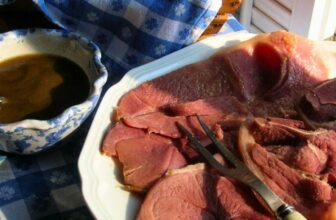
When you’ve coached as long as I have, you end up learning a lot of lessons. But most of them didn’t come from certifications, courses, or textbooks.
They came from experience—coaching others, coaching myself. And honestly? From getting things wrong more than once.
One thing I look back on now and think, What was I thinking?! is something I used to believe was helpful…
Something I saw a lot of other coaches do, too: using exercise as a form of punishment.
Ever trained a little harder after a weekend of indulgence?
Added an extra round at the gym because you skipped a workout yesterday?
Felt the need to “make up for” something?
That was exactly the approach I took with clients when I first started out.
You ate more than you were “supposed to” over the weekend? Let’s burn it off.
You’re late for your session? Guess what—we’ll make it “hurt” a little more.
It reinforced a message that’s been echoed for decades: No pain, no gain.
Somewhere along the way, movement stopped being a celebration of what our bodies could do and a way to increase their capacity—and started becoming a tool to fix what was “wrong” with them and something we only do when we did something ‘bad.”
Food became the reward.
Exercise became the punishment.
And that, right there, is the problem.
Using Exercise as Punishment Changes Everything—Quietly and Deeply
Every time we treat movement as “the stick” for doing something wrong, we plant a seed. A seed that says: Exercise is something to be avoided.
Because no one looks forward to being punished.
Even when a workout isn’t meant to be punishment, that’s the association we’ve built. We’re not moving because we want to—we’re moving because we feel we “have to.” And that’s how something positive becomes something we dread. That’s how we go from wanting to move to forcing ourselves to move.
You can’t build something positive from something your brain has learned to fear.
And then we wonder why we’ve lost the motivation, the energy, the excitement we used to feel.
It Damages Our Relationship With Food—and With Ourselves
In the punishment model:
Cake = extra cardio.
Lazy weekend = Monday burpees.
But here’s the truth:
Food isn’t something you need to earn.
And your workout isn’t a “get out of jail free” card.
It’s also not a solution to cravings or overeating.
When we reinforce that food = guilt and exercise = punishment, we strip away the opportunity to build an empowered, healthy relationship with either.
I remember a client who overindulged almost every weekend. And every Monday, I’d push them through an extra-tough session to “burn it off.”
What I didn’t do? Ask them why it kept happening.
I failed to see that my job as a coach wasn’t just to “make up for” the behavior…
It was to help them understand it. To get curious about what was really going on. To work together to find a more supportive way forward.
We didn’t change anything. We just kept repeating the cycle.
That’s not coaching. That’s damage control.
It Embeds Shame—And Shame Doesn’t Create Lasting Change
Shame might get someone to show up. It might push them to do one more round, one more sprint, one more cleanse.
But it doesn’t build confidence.
It doesn’t create consistency.
And it definitely doesn’t foster self-trust or long-term motivation.
What it does is make the coach the driver.
Now the client shows up not because they see value in the process—but because they want to avoid guilt, embarrassment, or disappointing someone.
That’s not empowerment.
That’s fear.
And when fear is your main motivator, burnout, resentment, or avoidance easily follows.
Shame disconnects us from the why behind movement. It strips exercise of its joy, its purpose, and its real benefits.
Why would we tie something as essential and nourishing as movement to guilt, pain, or performance anxiety?
And more importantly: Shouldn’t we be doing it for ourselves—not to please someone else?
What I’d Tell My Younger Coach-Self Today
I’d tell her:
I know you thought you were helping.
But you were reinforcing the same stories your clients already believed:
-
That they had to earn their right to eat.
-
That their body was a problem to be fixed.
-
That being shamed into change was effective.
I’d show her there’s a better way.
Because if a client “slips up” on their eating plan, the solution isn’t to punish them with sweat.
It’s to ask:
What made that choice feel like the right one at the moment?
How can we support you next time to make a choice that feels more aligned to your goals and values?
If someone misses a week of workouts, the answer isn’t to crush them when they return.
It’s to help them reconnect to their why. To remind them what movement does for them—not what it takes from them.
Movement Should Be a Partnership, Not a Punishment
As coaches, our job isn’t just to correct.
It’s to get curious. To listen. To guide.
To create a safe space for self-discovery.
To offer support and accountability—but from a place of respect and compassion, not control.
You don’t need to move to make up for what you did—or didn’t—do.
You move to build something:
A stronger body.
A calmer mind.
A deeper connection with yourself.
That shift—from punishment to partnership—is where real, lasting health begins.
What would you tell your younger self about using exercise as punishment? —Marlene
Trending Products





